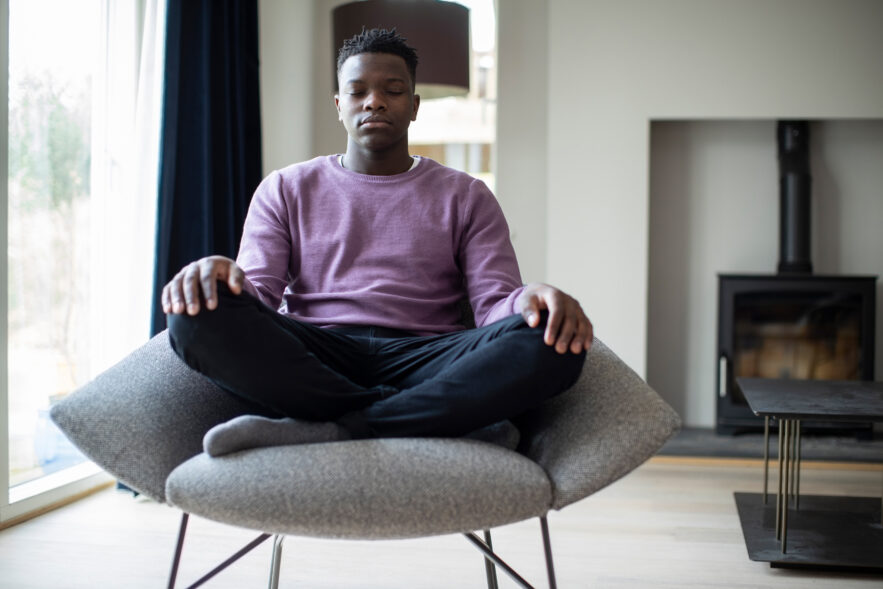Attention Deficit and Hyperactivity Disorder (ADHD) can be a challenging mental health condition to manage. Its common symptoms, marked by difficulty paying attention to one task, impulsiveness, and restlessness, can impact your relationships and career and shrink your quality of life. You can take forward steps to manage these symptoms effectively, and here are six ways to start.
1. Build Healthy Sleep Hygiene
As sleep problems like insomnia and restless legs syndrome are prevalent in those with ADHD, building a healthy pre-bedtime routine is one of the best tips for adults with ADHD. Sleep hygiene involves habits you must develop to promote nighttime rest. Its purpose is to reinforce the connection in your mind between sleep and bed. Here are some tips.
- Set an age-appropriate sleep-wake time daily.
- Don’t eat sugar or stimulants such as caffeine and alcohol a few hours before bed.
- Avoid activities requiring hyperfocus, like playing a video game.
- Skip any screen an hour before bed.
- Use a weighted blanket.
Many apps are now on today’s market that can also help lull you to sleep. And, regardless of your mental health conditions, additional sleep can help keep your brain healthy!
2. Make Workouts Fun
Mental health experts recommend an active lifestyle as a vital habit to reduce ADHD symptoms. Growing evidence of exercise combined with therapy and medical interventions shows promising signs of easing impulsivity and hyperactivity, while boosting executive functioning and attention control.
Experts cite physical activities work similarly to medications in increasing the supply of neurotransmitters, like dopamine and norepinephrine, in the brain. Both chemicals are essential for thinking and attention brain functions. Another 2017 review of 29 studies noted that exercise also decreases sleep complaints and insomnia.
You can try cardio routines like swimming, hiking and biking and non-cardio like yoga. Equally important to those with ADHD is to make exercise fun by catering to one’s capability, setting a fitness goal but varying the sets and reps, and providing challenges. The more a routine can feel like a game, the more you’ll enjoy participating.
3. Improve Time Management With a Routine
Another hurdle for people living with ADHD is time management. Estimating how long it takes to finish a task or recalling past and future events may be difficult. Although further research is necessary to better understand ADHD, a review found those with this condition have problems perceiving time, resulting in the feeling it has passed by without completing a task well. If you experience this, your perception of time can normalize with treatment.
One tip for adults with ADHD to curb time management issues is to structure your day. Planning your schedule and completing most of your tasks when you have the mental energy for them can make you feel more productive. You can also use a reminder app or a system to reference which urgent tasks must be completed first.
Many with ADHD find things like lists, notes to themselves (on paper or in smartphones) can help them stay on track.
“I have a room filled with sticky notes,” says Seamus Finley, 18, who was diagnosed with ADHD in the fifth grade. “If I didn’t have Post-Its, I am not sure I could function.” Finley tried taking different prescription medications for his condition while in school, but says that coping skills and lifestyle changes worked far better than any drug for him.
4. Manage Distractions
Internal and external distractions can deplete your energy faster and derail you from your daily goals. You can find ways to manage them through positive lifestyle shifts and effective strategies.
Avoiding, rather than resisting, is a critical approach to preserving your focus, keeping it up, and accomplishing what you need. It entails cutting the source of distraction, like not watching TV before bed, if it will make you hyperfocus. Besides health habits, these additional tips for adults with ADHD may work for you.
- Keep your workspace clean.
- Ease anxiety and rejection-sensitive dysphoria through cognitive-behavioral therapy.
- Do focused work 20 to 40 minutes after you take your stimulant medication.
- Put “Do Not Disturb” or similar apps on to work for you
- Create a space (such as an office or workspace) free from televisions, phones, or games
By employing strategies to regulate distractions successfully, you can get many tasks done during work hours and be satisfied with your accomplishments.
Finley says that he often leaves his cell phone charging in the kitchen when going to bed. This way, he is not tempted to play games or surf the internet while trying to focus on sleep.
“I can get more work done if the distractions are physically in another room,” he says. “I guess I’m kind of tricking my brain into thinking, that’s too far away to use now, so just focus on what you’re doing.”
5. Use Hobbies To Regulate Symptoms
Hobbies provide a healthy distraction for those with ADHD. You may find it disappointing if you can’t stick to a permanent hobby, but it’s often part of living with the condition. Acceptance is the key to overcoming and understanding that pastimes can be a trial-and-error process for you.
One second, you’ll be impulsive to try an exciting new hobby but get bored and exhausted from doing it repeatedly quickly. When this happens, dropping it off and finding another one to try again is OK. Try to remember not to be too hard on yourself, and find enjoyment where and when you can in whatever interests you in that moment. Even if those things vary greatly, finding happiness in the present can be rewarding.
6. Expose Yourself to Green Spaces
A study found bathing in nature can briefly enhance concentration and impulse control in children and adults with ADHD. This intervention is known as green therapy, and your garden can provide it. Being in an open environment can lower your cortisol levels, decrease your heart rate and put you in a better mood.
Coupling your fitness activity with green therapy, such as jogging at a nearby park, would be even more beneficial. This way, you can do two things at the same time.
Coping Skills for ADHD
Once you have found the coping skills that work for you, you can live a higher quality of life, regardless of your mental health condition. Sure, it’s more challenging for you to manage your time, stay productive, and stick to a routine — nevertheless, it’s possible to lessen the severity and impact of ADHD symptoms by employing the proper medical, therapy, and lifestyle interventions that work for you. Start with these six tips for adults with ADHD to test coping skills that may help you feel better.






